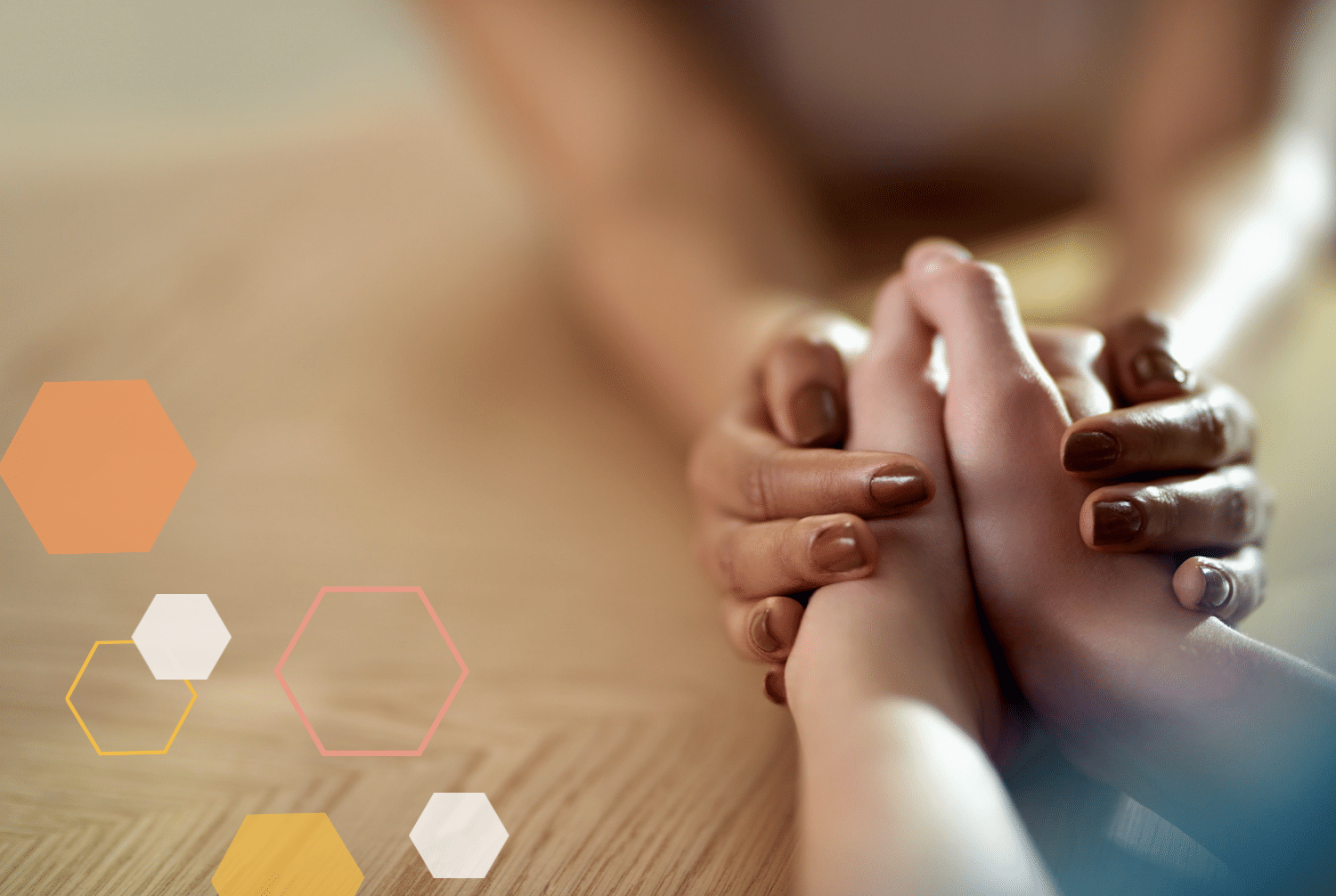There’s probably a reason forgiveness is an important part of many religious traditions. And even if you’re not spiritual, you likely know the value of apologizing to others when you make a mistake — or how receiving a heartfelt “I’m sorry” from a friend or loved one can help you feel better.
But did you know that forgiveness has very real, measurable benefits to your mental health, physical wellness, and social relationships? According to a large body of peer-reviewed research, it’s true!
The best part? Anyone can practice forgiveness, and it’s free. Let’s explore the physical benefits and psychology of forgiving and how to incorporate it into your daily life. But first, a quick look at what exactly forgiveness is.
WHAT IS FORGIVENESS
As you might imagine, you can only expect to derive benefits from forgiveness if you’re truly practicing the real deal. When you forgive, you’re doing it for your own benefit, with no expectations of changing someone else’s behavior.
The process involves releasing resentment, judgment, indifference, guilt, blame, and other negative feelings and replacing them with positive qualities like compassion, generosity, and even love.
You can do this for relatively trivial issues (like being cut off in traffic), but it also works for serious harm people may have caused in your past. And don’t forget about the power of forgiving yourself, which can help with any guilt you’re carrying around.
Health Benefits of Forgiveness
Making a habit of forgiving yourself and others is linked with these impressive outcomes:
- Happiness and satisfaction with life¹,²
- Improved overall physical and mental health³
- Increased longevity⁴
- A sense of well-being⁵
- A greater sense of hope⁶
- Happier and more satisfying romantic relationships⁷
- Better sleep⁸
- Less depression and anxiety⁶
- Improvements in chronic pain⁹
- Healing from trauma, including PTSD¹⁰
- Recovery from substance abuse and addiction¹¹,¹²
- Better physical therapy results after an injury¹³
- Recovery from eating disorders¹⁴
- Lower blood pressure and improved cardiovascular health¹⁵,¹⁶
- Less reliance on medications¹⁷
- Higher self-esteem¹⁸
- Decreased desire for seeking revenge¹⁸
- Better conflict resolution skills18
- A reduced tendency to procrastinate¹⁹
- Less anger and lower stress levels¹⁷
- A deep sense of inner peace at the end of life.²⁰
Scientists think stress reduction is one big reason forgiveness is good for your body.²¹ Stress is associated with many health problems, but making a habit of forgiveness can reduce your stress levels, leading to better health.
Interestingly, being forgiving not only makes you less reactive during challenging situations but also provides protection against mental recreations that occur after situations you perceived as harmful.²² Getting cut off in traffic once is plenty, so why replay it in your mind dozens of times?
Forgiveness can also help you be more in control of your emotions, relate better to others, and succeed in social situations.²³ Being calm, collected, and socially successful adds up to better overall health over time because you’re more likely to achieve your goals and have financial security.

The Psychology of Forgiveness
According to the language of spirituality, practicing forgiveness can help reduce suffering, cleanse and heal old emotional wounds, free blocked energy, unlock more compassion, and sometimes even help us make friends with enemies.
As Gautama Buddha said, “Holding on to anger is like grasping a hot coal with the intent of throwing it at someone else; you are the one who gets burned.”
It turns out that modern psychology research helps confirm many of these long-held views on forgiveness.
The science of forgiveness shows that it works well for people with histories of serious trauma and people who have caused significant harm to others. Forgiveness studies involving people in prison or survivors of violence show it’s effective for reducing depression, anger, hostility, and stress, decreasing shame and guilt, and replacing these negative experiences with positive feelings.²⁴,²⁵,²⁶
The key to making forgiveness beneficial is to make a habit of it, to develop forgiving tendencies.²⁷
In fact, researchers think forgiveness might help us cooperate better and build closer relationships over time while preventing tendencies like retaliation and avoidance when we perceive harm.²³ All of these positive traits usually add up to healthier relationships, which in turn may help reduce the risk of abuse and dysfunction in our interpersonal lives.
It’s also normal for forgiveness to raise feelings of vulnerability, which is part of the healing process. Remember that forgiveness is for your benefit. You’re letting things go so you can move on. It doesn’t necessarily mean that what happened was perfectly fine, and it certainly doesn’t mean that you’re going to let yourself be taken advantage of in the future.
Regardless of where you stand on the spiritual aspects of forgiveness, as the next story illustrates, the results can be quite miraculous.
The Story of Lester Levenson
In the 1950s, 42-year-old Lester Levenson was declared untreatable following a heart attack and sent him home to die.²⁸
Advised to stay in bed because he “might drop dead at any moment,” Lester had a strong intuition that his negative feelings were somehow responsible for his health problems. He’d always blamed his problems on fate, the world, and other people.
As he lay in bed, Lester meticulously recalled episodes of his life.
When he remembered feeling loved or loving someone, he focused on amplifying those positive experiences. And when he recalled negative emotions, he released them, then replaced the difficult emotions with forgiveness and love.
Soon, he recovered his health and livelihood and lived 40 additional years filled with joy and compassion.
Your life might be busier than Lester’s when he was stuck in bed, but you can still fit a forgiveness practice into each day, as we’ll explore next.
How to Practice Forgiveness Daily
You’ll get the best results if you try practicing forgiveness daily. Some of the most exciting results — like feeling better! — start immediately, and the practice doesn’t take much time at all.
First, remember that you’re practicing forgiveness for yourself. You’re not doing it to fix or improve other people. To work well, forgiveness should be unconditional, with no attachment to external results.⁴
Second, be sure to work at your own pace. If you’ve got serious trauma in your past, that’s probably not the best place to start. You can begin by noticing times you’re being hard on yourself, then immediately make an effort to forgive yourself, release the negative emotions, and have self-compassion.
There are multiple methods for practicing forgiveness. Here are their most common elements:²⁹
- Recognize the value of forgiveness for improving your life (and the lives of people you care about).
- Identify what you’d like to achieve (your goals can be broad or specific).
- Recall a specific incident that was challenging. What happened? What feelings occur when you think about it? Who did you blame? Allow these feelings to surface, but instead of feeding them, observe them. If possible, simply let the negative feelings go.
- Focus your intention on forgiving yourself or someone else (often, you can do both). You can even say “I forgive you” or “I forgive myself” aloud.
- Try to cultivate feelings of compassion and empathy for yourself and others.
- If feelings of unforgiveness or anger still remain, be compassionate with yourself, but focus your intention on releasing these feelings in the future, over time, as you feel ready.
In some cases, (where appropriate) you may also want to try voicing an apology, or having a discussion with someone where you offer your forgiveness.
For relatively minor issues, one or two forgiveness sessions might be enough. But for a challenging situation, you might choose to revisit it repeatedly.
You can schedule your forgiveness practice in whatever way works best for you.
Morning and Evening Practice
Practicing forgiveness every morning and night can help you to be consistent. You can do it as soon as you wake up and as soon as you get in bed at night before going to sleep.
Each time, try focusing on at least one incident where you forgive yourself and a situation where you forgive someone else. Often, you can do both of these for the same situation. You can also alternate between recent and past incidents or feelings.
Spontaneous Forgiveness
If you can remember to do it, spontaneous forgiveness is probably the simplest way to practice.
Each day, any time you feel you’ve done something wrong or that someone has upset or harmed you, work on identifying the negative feelings, releasing them, and replacing them with compassion, understanding, and love (if possible). You can also verbalize your apology or your intention to forgive.
Practicing forgiveness is a lot like training a muscle, so the more you do it, the better you’ll become. Try identifying forgiveness opportunities throughout the day. Setting a daily timer is an easy way to remind yourself.
Forgiveness Journaling
Handwritten journaling is an excellent way to bring more of your brain and mental processes on board for forgiveness.
When you write by hand, you involve more areas of the brain, such as the motor cortex.³⁰
Here are some ideas:
- Write the situation, how you felt about it, and any feelings of guilt or blame that come up.
- Release those feelings, then write down how you feel after doing so.
- Make a list of reasons you would like to forgive anyone involved, including yourself.
- Replace negative emotions with positive ones (such as empathy, understanding, compassion, or love) and write how that feels.
- You can write a letter of apology to anyone involved (including yourself). You don’t have to send it.
- Make a to-do list of helpful actions to take, or write resolutions about how you’ll handle similar situations in the future.
You can incorporate forgiveness journaling occasionally or as part of your regular daily or spontaneous forgiveness practices.

Forgiveness, Meditation, and Visualization
Similar to journaling, adding mindfulness or visualization exercises could improve your results by involving more of your brain in the process.
Mindfulness meditation is correlated with increased brain plasticity and potentially leads to greater self-awareness.³¹ And large portions of the brain are devoted to visual processing.³²
Also, research suggests that being mindful may automatically help you become more forgiving, which could benefit your interpersonal relationships.⁷
To get started with forgiveness meditation and visualization, set aside a few minutes to visualize a recent or past situation that was challenging. Note any challenging emotions that arise, then release them. Look for opportunities to forgive yourself or others, then replace the negative feelings you released with authentically positive ones like understanding, compassion, and love.
Take some time to feel each sensation or thought as it arises, and nonjudgmentally observe what happens during and after each step.
References:
- https://pubmed.ncbi.nlm.nih.gov/33925790/
- https://www.sciencedirect.com/science/article/abs/pii/S0191886917305007
- https://pubmed.ncbi.nlm.nih.gov/24003587/
- https://pubmed.ncbi.nlm.nih.gov/21706213/
- https://www.ncbi.nlm.nih.gov/pmc/articles/PMC7528379/
- https://pubmed.ncbi.nlm.nih.gov/25487180/
- https://pubmed.ncbi.nlm.nih.gov/32557802/
- https://www.ncbi.nlm.nih.gov/pmc/articles/PMC6992518/
- https://pubmed.ncbi.nlm.nih.gov/32125628/
- https://www.ncbi.nlm.nih.gov/pmc/articles/PMC9328408/
- https://pubmed.ncbi.nlm.nih.gov/16956870/
- https://pubmed.ncbi.nlm.nih.gov/21443306/
- https://pubmed.ncbi.nlm.nih.gov/22017571/
- https://pubmed.ncbi.nlm.nih.gov/22188058/
- https://pubmed.ncbi.nlm.nih.gov/30632797/
- https://pubmed.ncbi.nlm.nih.gov/19229635/
- https://pubmed.ncbi.nlm.nih.gov/18262673/
- https://www.sciencedirect.com/science/article/abs/pii/S014019711200053X
- https://www.sciencedirect.com/science/article/abs/pii/S0191886910000474
- https://pubmed.ncbi.nlm.nih.gov/32813428/
- https://pubmed.ncbi.nlm.nih.gov/27068160/
- https://pubmed.ncbi.nlm.nih.gov/22822231/
- https://pubmed.ncbi.nlm.nih.gov/32088347/
- https://pubmed.ncbi.nlm.nih.gov/27009829/
- https://pubmed.ncbi.nlm.nih.gov/32316793/
- https://pubmed.ncbi.nlm.nih.gov/33709484/
- https://pubmed.ncbi.nlm.nih.gov/30652883/
- https://lesterlevenson.org/about-lester/
- https://pubmed.ncbi.nlm.nih.gov/31735110/
- https://pubmed.ncbi.nlm.nih.gov/23831432/
- https://pubmed.ncbi.nlm.nih.gov/33299395/
- https://www.sciencedirect.com/science/article/abs/pii/S0029646520300451



